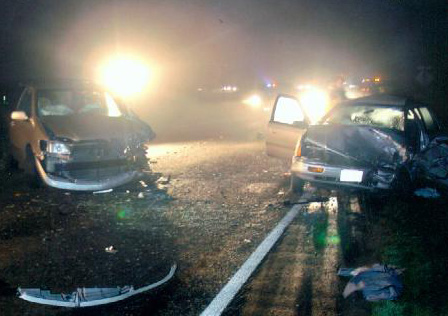Bad things jurors aren't told in car crash cases
If we could give jurors the full story, they wouldn’t be so suspicious and skeptical. Generally trial starts off with the jurors more suspicious of the plaintiff than the defendant. They think the plaintiff is probably very greedy and that’s why a case hasn’t settled out of court. They feel sorry for the poor defendant. Some of the laws and the judges who interpret the laws, make it even more difficult for a plaintiff to get a fair shake. They prevent the jury from hearing what is really going on. Here are the top three things that jurors have not been told in car crash cases that I’ve tried.
1. Insurance.
Almost every single defendant who is sued and brought to trial has insurance. We cannot sue the insurance company, we have to sue the defendant. The insurance companies have a gazillion lawyers who work for them. They don’t care how much it costs and often play “hardball.” They make it very expensive for anyone to ever sue them. The insurance company gets to hide from the jury. They make the defendant attend trial each day. They hope the jury will feel sorry for the defendant. In reality, the defendant isn’t going to pay a single dime of any verdict – the insurance company is. If we start talking about insurance during trial, we may risk a mistrial. Story: After trial I spoke to jurors who told me they would have given a bigger jury verdict but were worried that the defendant was a college student and would suffer. They felt terribly when I told them the young man was fully covered by his parents' insurance.
2. Drunk drivers.
A good percentage of the time, plaintiffs are injured by drunk drivers. The insurance company will generally deny responsibility. The lawsuit has to be brought against the defendant driver. Then sometime before trial, after making the whole process as expensive as possible for the plaintiff, the defendant will admit they are at fault. They will then ask the judge to prevent the plaintiff from telling the jury why the crash happened. The judge will almost always order the drunk driving is “irrelevant” and not to be told to the jury. Story: I used to be a defense lawyer and represented Metro – our county bus service. A bus driver had hit and killed a young man and drug him around town without even realizing it. The driver was an alcoholic and drunk at the time. Metro denied liability at first but then several months before trial “admitted” fault. At trial, the jury never heard that the driver was drunk.
3. Settlement and Mandatory Arbitration.
Insurance companies bank on the 80/20 rule. 80 percent of people will take a lower settlement than they should rather than file a lawsuit. Of the 20 percent who file suit 80 percent of those will still take a lower settlement than they should rather than go to arbitration or trial. Most of the smaller cases go through mandatory arbitration. This involves a hearing with witnesses and evidence. It is not as formal as a trial. But even though it is mandatory, the insurance companies routinely appeal the arbitration verdicts to force a jury trial. They do this to make it more expensive for people with modest claims to sue. They want to discourage attorneys from ever handling these cases. At trial, the jury cannot be told about the arbitration or settlement attempts. They never hear about the typical situation where plaintiff tries to settle the claim only to be low-balled or stalled for years by the insurance company. Story: A few months ago I was in trial selecting a jury in a case involving a minor child. I’m asking them about issues that concern them and they make these comments: 1) the court system should be reserved for criminal trials and big huge cases – not car crash cases; 2) a case that has drug on for four years or so must mean that the plaintiff is being unreasonable; and 3) the plaintiff’s parents are the greedy ones who filed the lawsuit and are not acting in their child’s interests, but their own.
The next time you are on a jury – remember. There are many things you won’t be told because of the law. It is dangerous to make assumptions about things that you don’t know or are not told. If you make assumptions – they will often be quite wrong. And there will be no way to make things right after your verdict has been entered.

